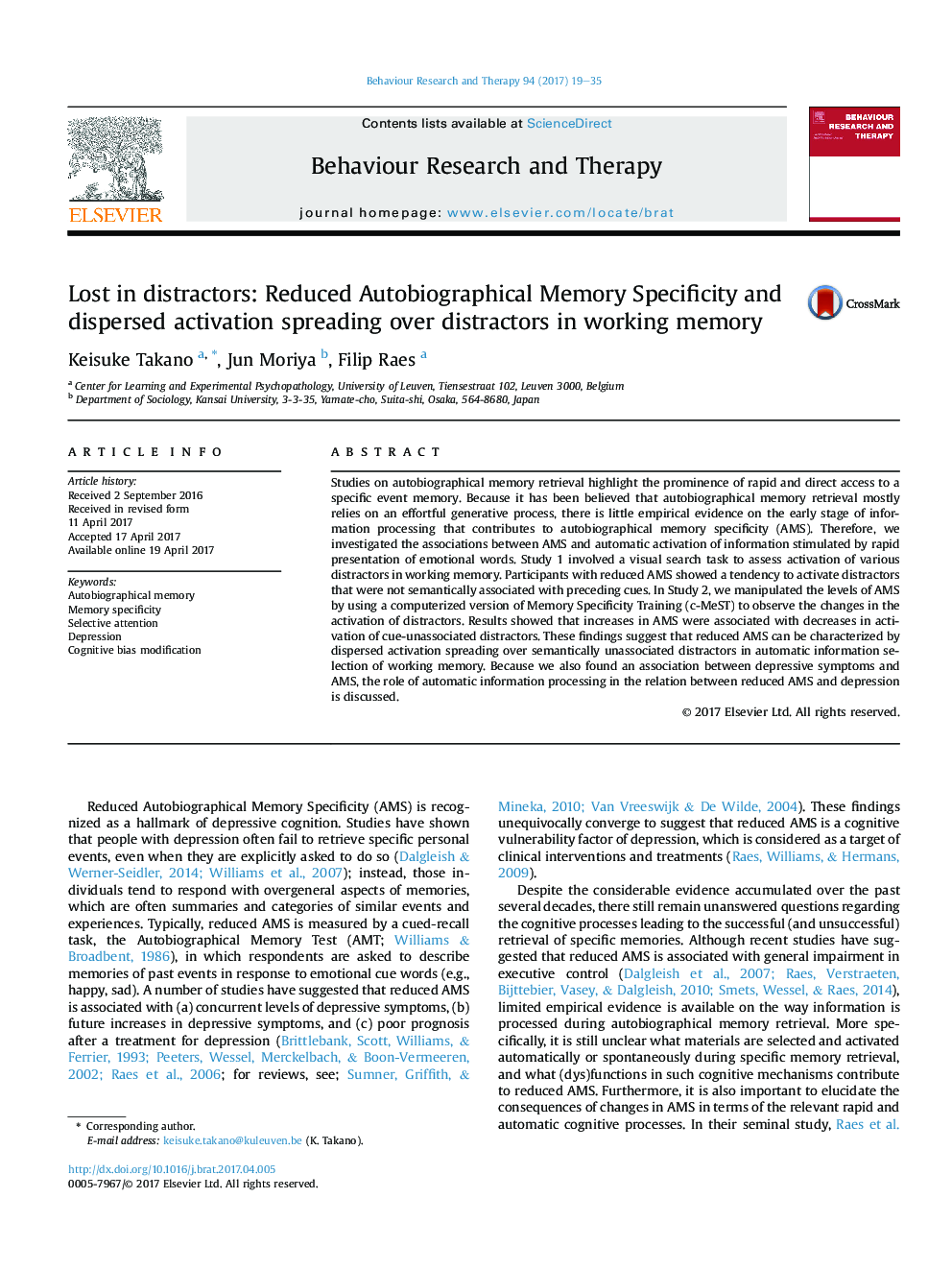| Article ID | Journal | Published Year | Pages | File Type |
|---|---|---|---|---|
| 5038232 | Behaviour Research and Therapy | 2017 | 17 Pages |
â¢We manipulated autobiographical memory specificity (AMS) and examined the effects.â¢Selective activation of semantic information in working memory was tested.â¢Increased AMS was associated with reduced activation of cue-irrelevant distractors.â¢Increased AMS was also associated with decreased depressive symptoms.
Studies on autobiographical memory retrieval highlight the prominence of rapid and direct access to a specific event memory. Because it has been believed that autobiographical memory retrieval mostly relies on an effortful generative process, there is little empirical evidence on the early stage of information processing that contributes to autobiographical memory specificity (AMS). Therefore, we investigated the associations between AMS and automatic activation of information stimulated by rapid presentation of emotional words. Study 1 involved a visual search task to assess activation of various distractors in working memory. Participants with reduced AMS showed a tendency to activate distractors that were not semantically associated with preceding cues. In Study 2, we manipulated the levels of AMS by using a computerized version of Memory Specificity Training (c-MeST) to observe the changes in the activation of distractors. Results showed that increases in AMS were associated with decreases in activation of cue-unassociated distractors. These findings suggest that reduced AMS can be characterized by dispersed activation spreading over semantically unassociated distractors in automatic information selection of working memory. Because we also found an association between depressive symptoms and AMS, the role of automatic information processing in the relation between reduced AMS and depression is discussed.
